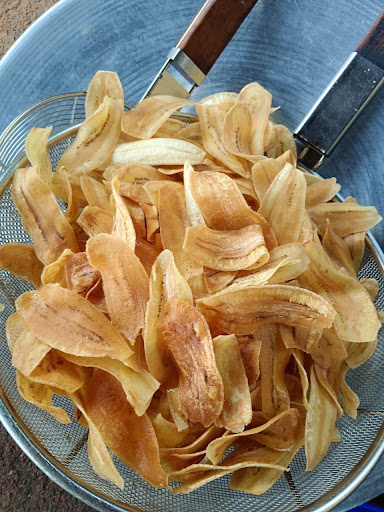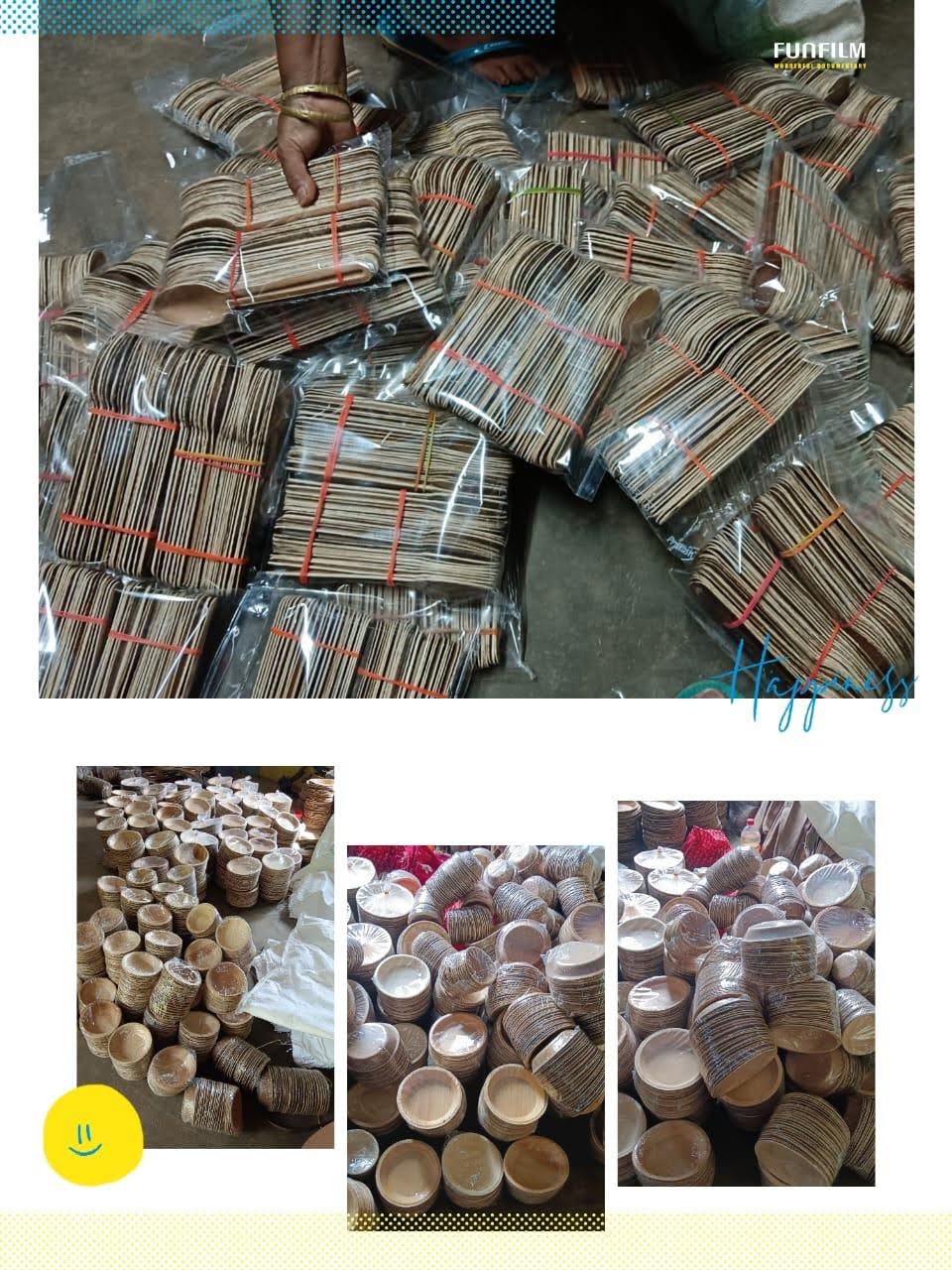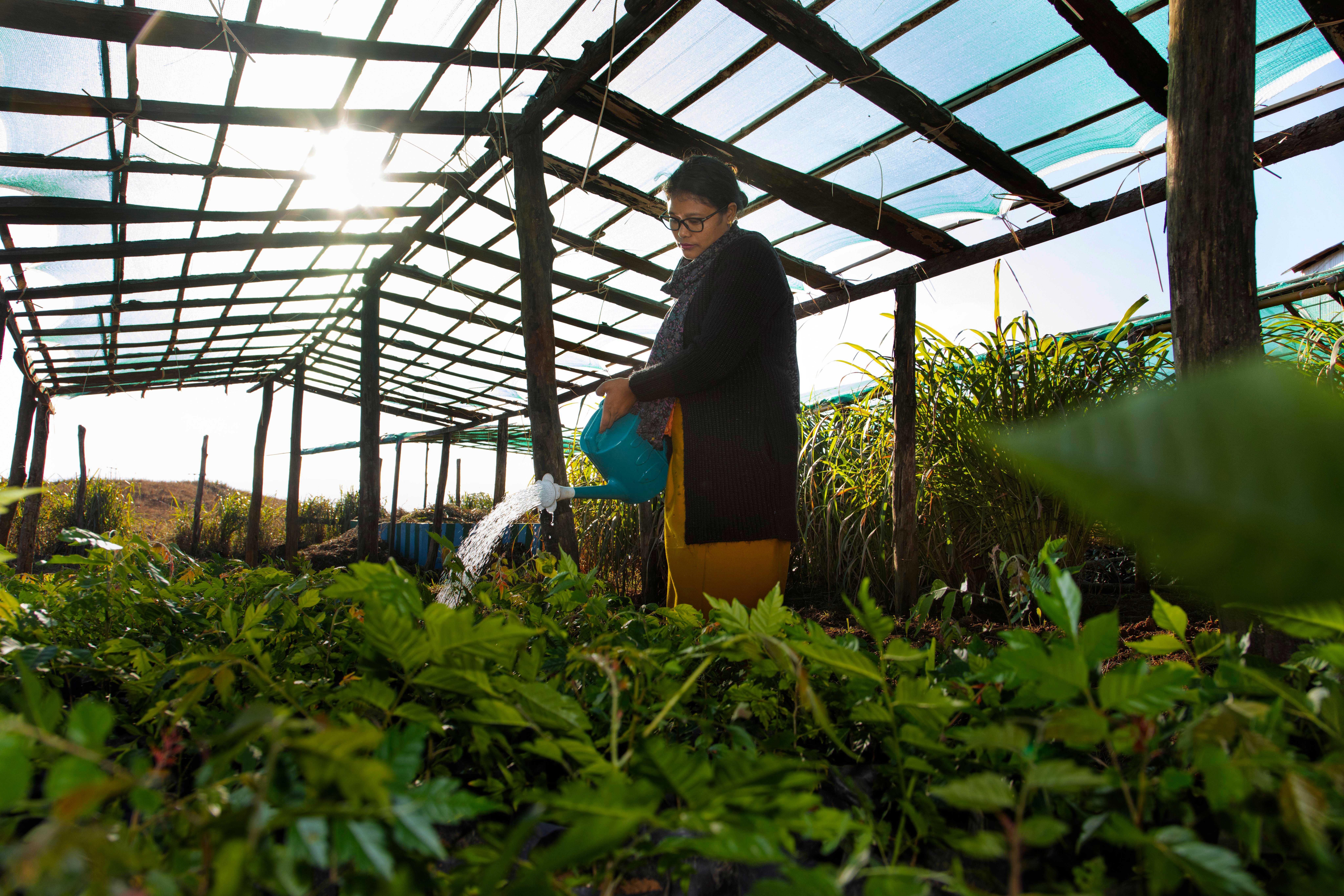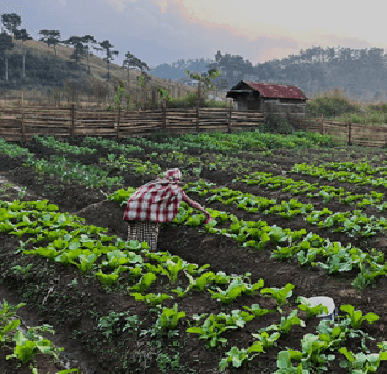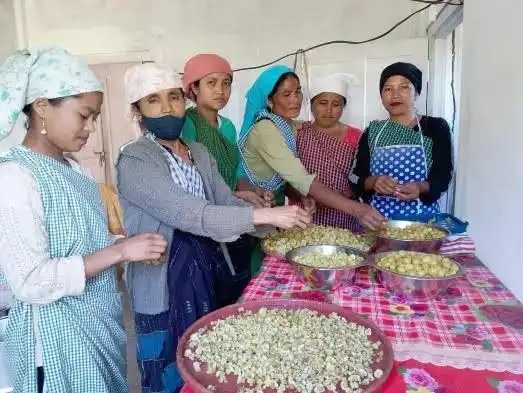RANGSAPARA VDVK (NONGDIENGKAIN VDVK-C)
| NAME OF VDVK | RANGSAPARA VDVK (NONGDIENGKAIN VDVK-C) |
|---|---|
| LOCATION | |
| DISTRICT | WEST KHASI HILLS |
| BLOCK | MAWSHYNRUT BLOCK |
| VILLAGE | NONGDIENGKAIN |
CURRENT ACTIVITIES
- Value addition of Banana into Banana Chips
- Value addition of Arecanut sheaths into plate and Spoons
SHORT NOTE ON THE SUCCESS
The Van Dhan Vikas Kendra (VDVK) initiative, launched under the Pradhan Mantri Van Dhan Yojana (PMVDY), has been instrumental in transforming the lives of the Tribal communities in Mawshynrut Block. Aimed at enhancing livelihood opportunities, this program focuses on harnessing the wealth of forest produce, promoting sustainable practices, and fostering self-reliance among tribal populations.
In Mawshynrut Block a group of determined tribal women formed a VDVK by the name Nongdeinkain. There are around 302 beneficiaries. Their mission: to create value-added products from locally available resources like bananas and areca nuts. The primary products included banana chips and eco-friendly plates, bowl and spoons made from areca nut sheaths.
Over the past two years, the Nongdeinkain Van Dhan Vikas Kendra (VDVK) has successfully produced and marketed banana chips and areca nut products, extending their outreach beyond Meghalaya to Assam. With sales reaching Rs. 865,850, the cooperative has showcased its products at various fairs and programs, gaining widespread recognition. Their banana chips have become a bestseller, consistently selling out and receiving orders for weddings and parties. This success story highlights the VDVK's ability to harness local resources and create a thriving business, positively impacting the community's economy and visibility.
CHALLENGES AND ISSUES
The journey was not without its challenges. The women faced several hurdles, including:
- The members had limited knowledge about modern processing techniques and packaging methods required to produce high-quality banana chips and areca nut products that could compete in the market.
- Penetrating the competitive market and creating a niche for their products proved daunting.
- Ensuring consistent quality in production was a challenge, especially given the traditional, manual methods initially used.
- Unavailability of the raw products during off season is one of the major challenges of the beneficiaries.
IMPACT OUTCOME
The VDVK members experienced a significant increase in their incomes. Profits from the sale of banana chips and areca nut products not only improved their economic stability but also allowed for investment into other business, creating a sustainable income source. Prior to this the members are using the banana only for self-consumption and the areca nuts sheaths are mainly a waste product. Through training and hands-on experience, the members gained valuable skills in food processing, quality control, and business management.
These skills empowered them to take control of their enterprise and ensure its growth. The focus on eco-friendly products, such as areca nut plates, bowls and spoons, promoted sustainable practices and reduced the community's reliance on plastic products. This not only helped in conserving the environment but also positioned their products favourably in eco-conscious markets.
PHOTOGRAPHS
